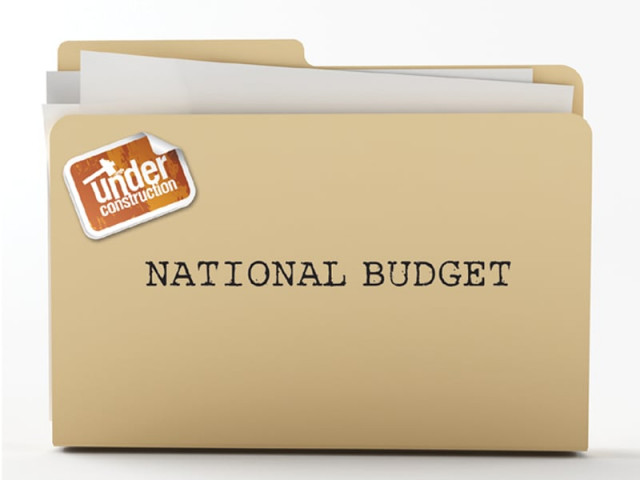Smokescreen: To please new govt, finance ministry to paint a pretty picture for next year
Observers say targets for budget deficit is deliberately understated to curry favour with new managers.

Some insiders claimed that the decision to project the budget deficit on the lower side was aimed at winning the sympathies of the new ruling party. PHOTO: FILE
Budget makers are considering setting next year’s budget deficit target at 5.6% of total national output. The decision seems to be a continuation of the state’s policy of understating expenditures and overstating revenues: experts say a consolidation of over Rs400 billion by next year seems highly unlikely, given that the country is struggling through a period of economic stagnation.
The finance ministry is reportedly revisiting an earlier budget framework prepared with the assumption that the deficit would clock in at 6.5% of GDP. “Any target over 6.5% will be realistic, given the fact that the deficit for the current fiscal year will be in the range of 7.6-8% of GDP or Rs1.8 trillion,” sources said. The deficit had already touched 5.4% of GDP during the first ten months of the ongoing fiscal year.
At best, a consolidation of 1% of GDP can be achieved in a country passing through a prolonged phase of consistently low economic growth and high inflation, economists said. For the current fiscal year, the estimated size of the economy is Rs22.9 trillion (1%=Rs229 billion); for next year, the estimated size is close to Rs25 trillion (1%=Rs250 billion).

Sources said the finance ministry’s deficit assumption of 5.6% of GDP means the economy will somehow achieve a consolidation of at least 2-2.5% of GDP. Also consider the fact that the new government reportedly intends to float Rs500 billion worth of treasury bills to address the circular debt issue, which will automatically widen the budget deficit by 2% if implemented.
Finance ministry officials were not willing to comment on record, but said that a massive improvement in revenue collection and substantially lower power subsidies provided scope for a major fiscal consolidation to be achieved.
Some insiders also claimed that the decision to project the budget deficit on the lower side was aimed at winning the sympathies of the new ruling party. They added that since such an overambitious target can never be achieved, this will actually create problems for the new finance minister during the course of the year.
The finance ministry has proposed provisioning Rs288 billion as power subsidies for the next year, but sources added that the allocation for power subsidies is likely to be cut further. So far, over Rs325 billion have already been paid in power subsidies this fiscal year, with four weeks to go before the year closes on June 30.
It remains to be seen whether the new government will actually increase power tariffs and reduce line losses to control the deficit, but one of the proposals under consideration calls for charging special tariffs from all consumers who use more than 300 units of electricity every month.

Due to the rigidity of the government’s expenditures, there is little room for cutting interest payments and defense spending, the two largest expense respectively.
Sources said the collection target for the Federal Board of Revenue (FBR) was proposed at Rs2.475 trillion on an old assumption. Under the new assumption, budget makers are considering proposing a revenue target close to Rs2.6 trillion, which observers say can never be achieved.
The FBR’s tax target was Rs2.381 trillion for the current fiscal year, Rs498 billion higher than the target for the preceding year. So far, the FBR has failed miserably in doing its job. Its target was first revised down to Rs2.193 trillion, then later to Rs2.05 trillion. Now its new target is reportedly even lower – at a mere Rs2.018 trillion.
Sources say it is doubtful whether the FBR can even collect more than Rs1.975 trillion, which will be higher over the preceding year’s collection, albeit by less than Rs100 billion.
“Expecting the corruption-ridden FBR to provide Rs600 billion in additional revenues in one year is unwise and an attempt to overstate revenues,” one of them remarked.
Published in The Express Tribune, June 1st, 2013.
Like Business on Facebook to stay informed and join in the conversation.



















COMMENTS
Comments are moderated and generally will be posted if they are on-topic and not abusive.
For more information, please see our Comments FAQ